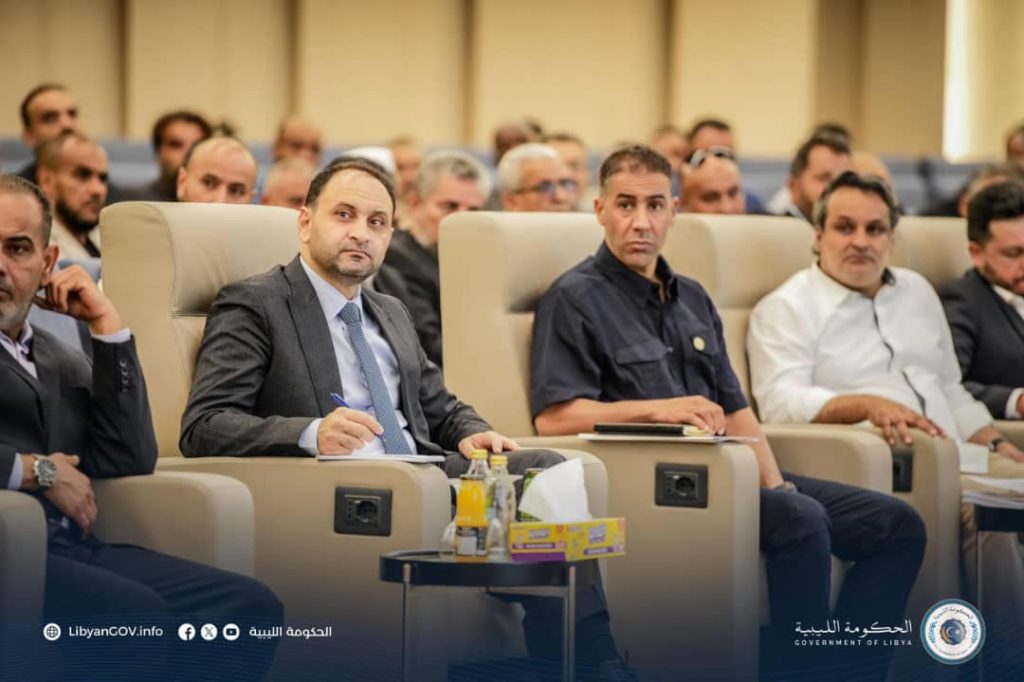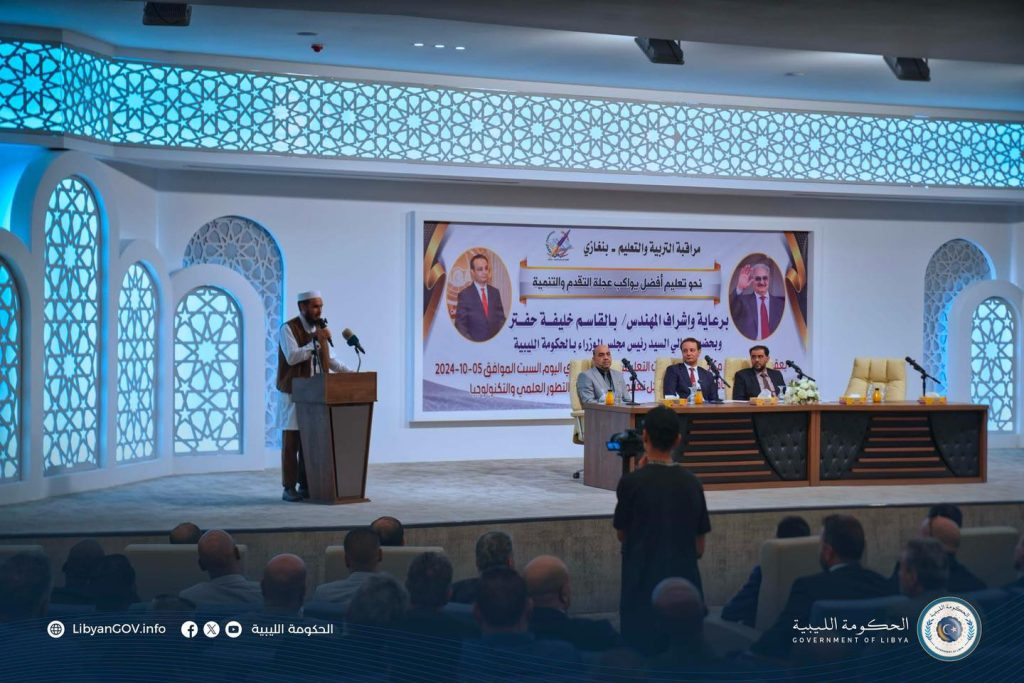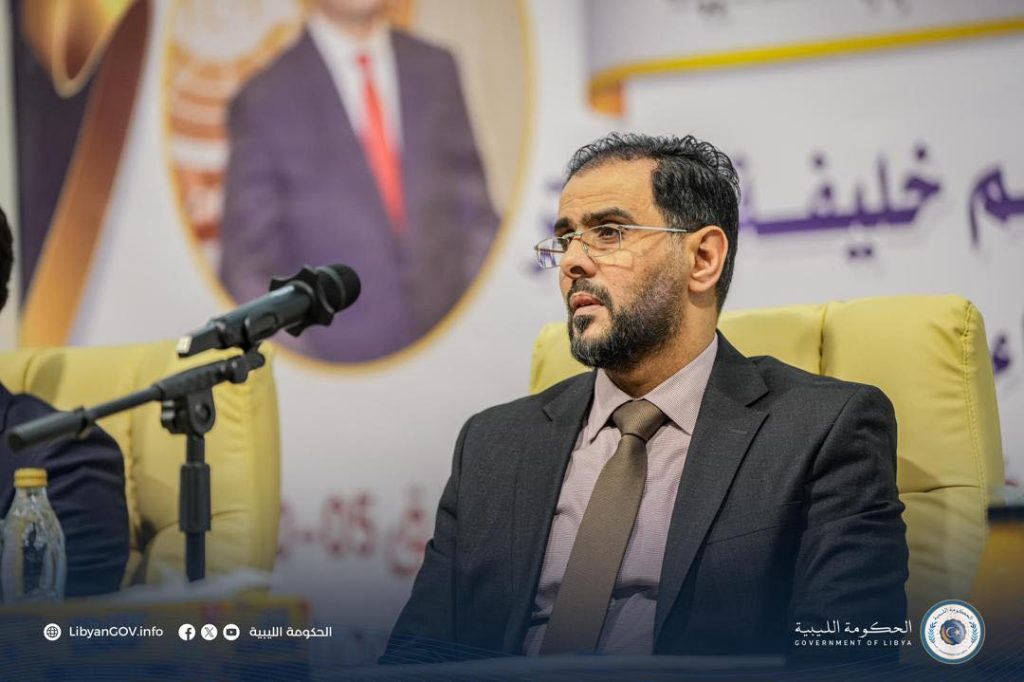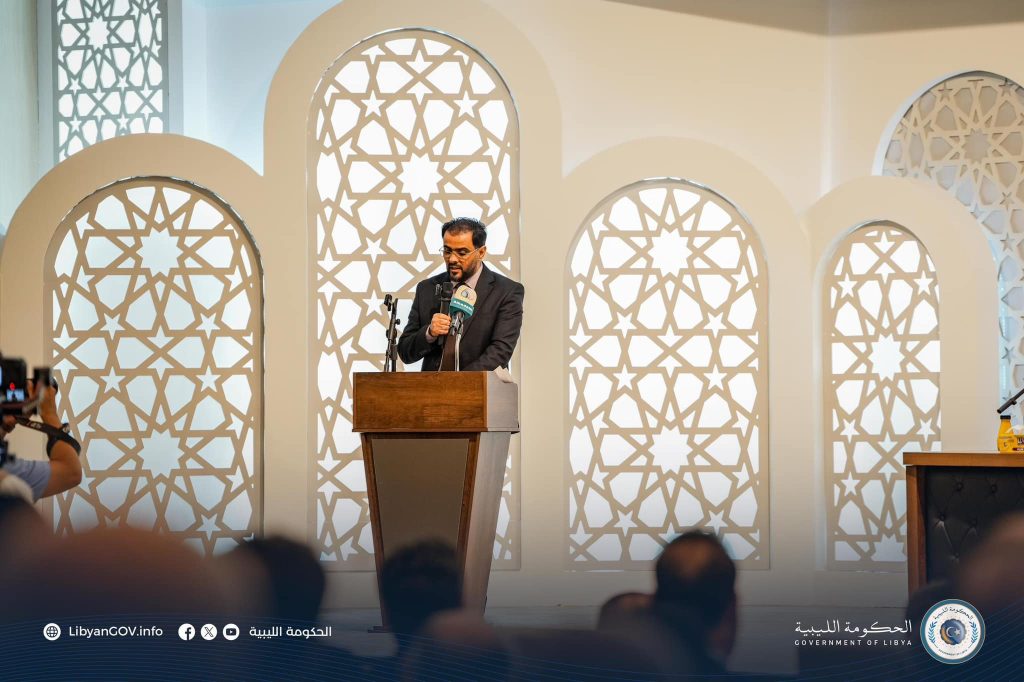Soldecanarias.net / Adeje
In a clear sign of commitment to improving the education system, Libyan Prime Minister Dr. Osama Hamad chaired a key meeting today with the directors of the country’s main educational institutions in the city of Benghazi. The meeting was attended by prominent officials such as the Director-General of the Libyan Development and Reconstruction Fund, Abulqasem Haftar, as well as representatives from the healthcare and religious sectors, with the aim of analyzing the obstacles facing the Libyan education sector.



During the meeting, the barriers hindering the progress of the education system in Libya were thoroughly discussed. The institution directors presented their concerns and needs, including the modernization of academic curricula to align with international scientific and technological advancements, as well as increased investment in teacher training and development programs.
The Prime Minister emphasized the importance of updating curricula and providing resources for teacher training, thus ensuring high-quality education. He also acknowledged the need to improve teachers’ salary conditions, especially in a challenging economic context, to ensure they can effectively fulfill their educational mission.



The Libyan government, in collaboration with the Development and Reconstruction Fund, reaffirmed its commitment to building and renovating educational centers, some of which are already nearing completion. Improving educational infrastructure has been one of the Libyan executive’s priorities, aiming to ensure that schools are ready for the upcoming academic year.


This meeting is part of the Libyan Government’s National Strategy, aimed at raising the quality of education and creating a modern learning environment that enables new generations to face future challenges. According to the Prime Minister, education will be one of the fundamental pillars for the country’s progress and stability in the coming years.
The international community is closely monitoring this effort in a country that is seeking to rebuild its institutions after years of instability. The educational reforms driven in Benghazi could mark a turning point on the path toward a more efficient and equitable education system in Libya.





